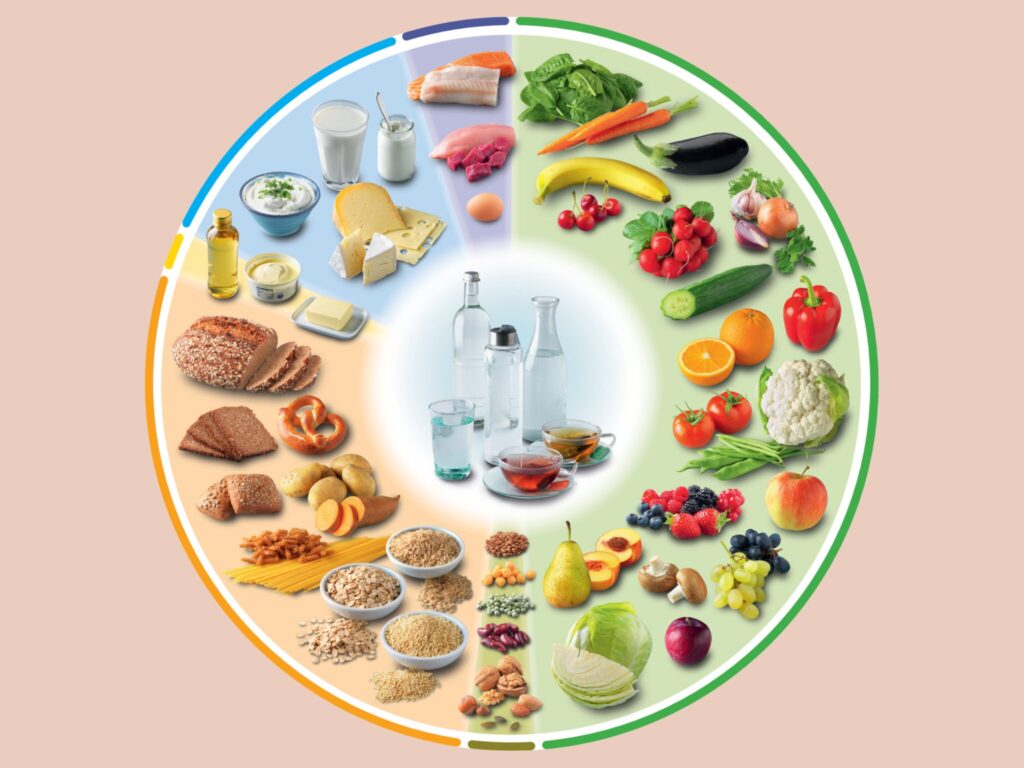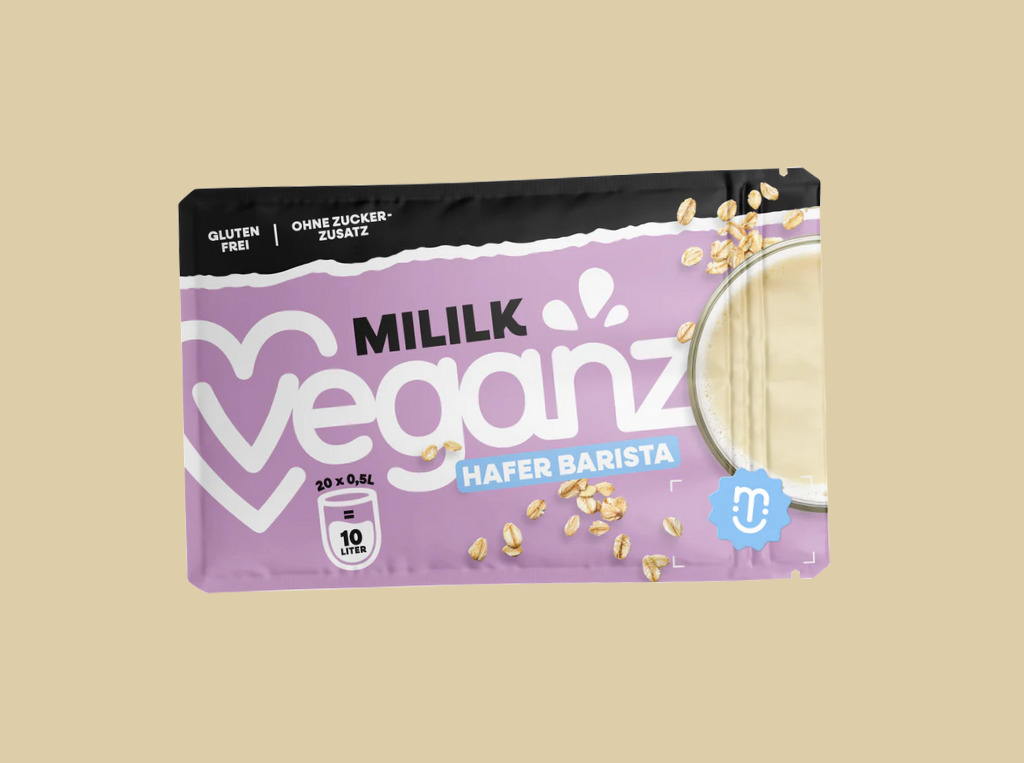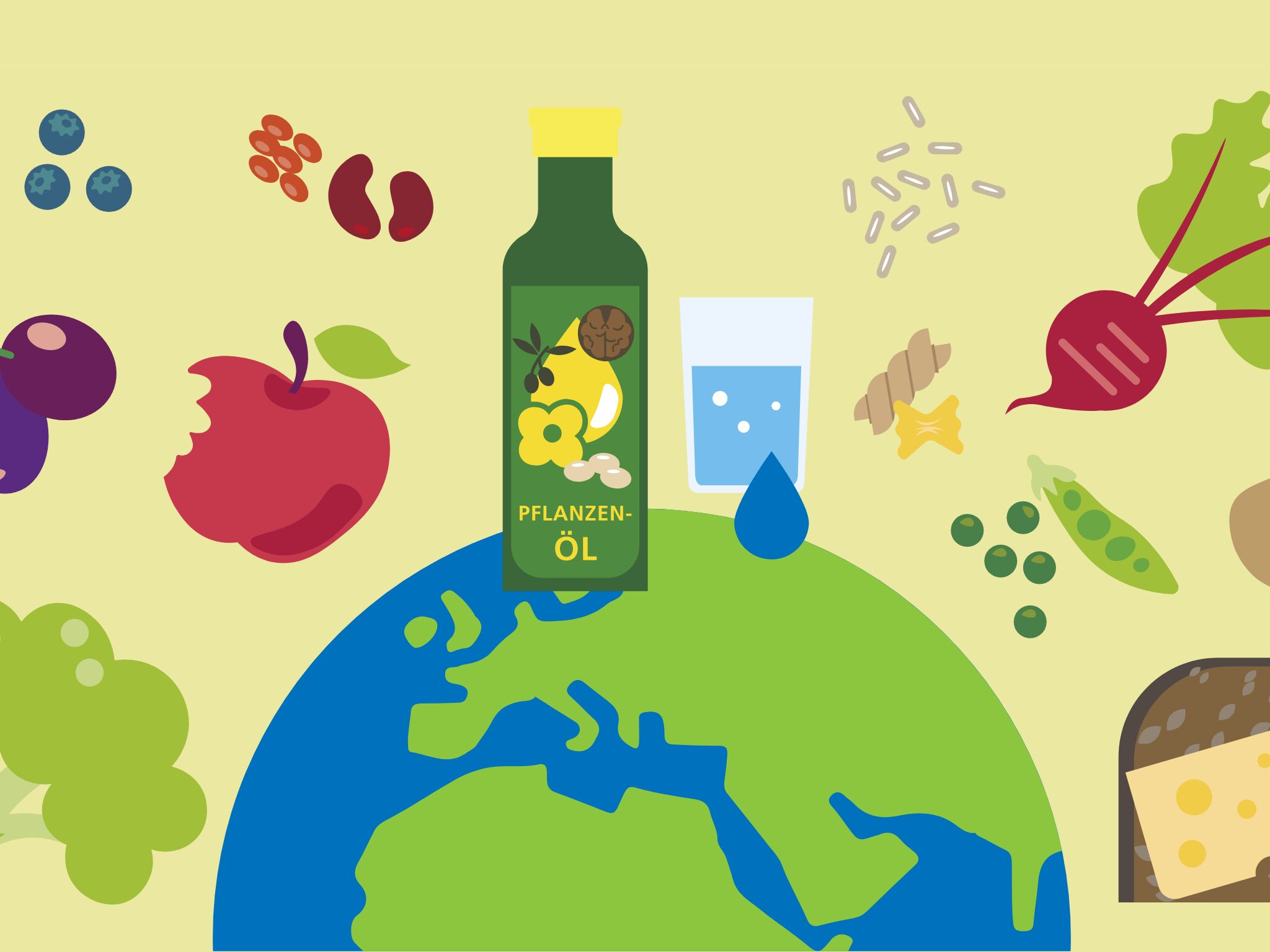Eat At Least 75% Plant-Based Foods, Say Germany’s New Dietary Guidelines
7 Mins Read
The German Society for Nutrition has updated its dietary guidelines to recommend halving meat consumption, limiting dairy intake, and eating more plant-based foods – the latter should make up at least 75% of your diet.
Months after committing funds in its 2024 budget for a plant-based transition, Germany’s new dietary guidelines reflect the country’s attitude towards the future of food. Echoing the EAT-Lancet Commission’s Planetary Health Diet, the Deutsche Gesellschaft für Ernährung (DGE) has outlined the importance of plant-forward eating habits.
The new dietary guidelines recommend that Germans eat less meat, less dairy, fewer eggs, and more plant-based foods – both for their own health as well as the planet’s. It’s based on a new mathematical optimisation model, based on the idea that the larger a food group is, the more you can eat from it.
The DGE suggests that a “health-promoting and ecologically sustainable diet” comprises more than 75% of plant-based foods, and less than a quarter of animal-derived ones. “If we want to eat a healthy diet and at the same time protect the environment, we have to change our diet now,” said DGE president Bernhard Watzl, who is also the head of the Food-Related Nutrition Recommendations working group.
A new wheel emphasising plant-based foods

The new dietary guidelines are based on a model the DGE developed with experts from multiple disciplines, which calculates the quantities for specific food groups and generates an optimal consumption solution. The recommendations are aimed at adults aged 18-65 who eat both plant-based and animal foods, and have no special dietary needs.
A nutrition wheel illustrates what a healthy and sustainable diet looks like, according to the DGE’s revised guidelines. Drinks represent the largest food group – this essentially means water and unsweetened tea. This is followed by fruits and vegetables; legumes, nuts and seeds; and grains and potatoes. Animal-derived foods like milk and dairy products, fish, meat and eggs make up the rest of the wheel, representing less than a quarter of the total.
The guidelines suggest eating at least five fruits and vegetables daily, with an emphasis on seasonality, colours and variation. Essentially, the idea is that Germans eat more of these every day – and those who don’t eat meat are recommended to up their intake of plant-based whole foods. What they should be eating less, though, are animal-derived foods. The daily recommended value for milk has been reduced from three portions to two. This computes to 500g of dairy in total, which could mean two glasses of milk, two slices of cheese, or two 150g pots of yoghurt.
As for meat and seafood, the guidelines have cut weekly values from a 300-500g range to a maximum of 300g, with an additional 30g set aside for sausages. The DGE points out how eating “too much beef, pork, lamb and goat meat – and especially sausages made from them – increases the risk of cardiovascular disease and colon cancer”.
Meanwhile, legumes and nuts have their own section for the first time, with Germans recommended to eat 125g of the former weekly, and 25g of the latter daily. The guidelines also suggest eating whole grains over processed, and vegetable oils over animal fats like butter. Moreover, processed foods high in sugar, fat and salt have been removed from the wheel, owing to their links to obesity, type 2 diabetes, and cardiovascular disease.
This is all consistent with a 2023 review of 37 health studies by researchers in Germany, which revealed that switching from processed animal products to whole-foods plant-based diets can significantly reduce the risk of cardiovascular disease, diabetes, and death. Replacing 50g of processed meat with 28-50g of nuts daily can lower the risk of death by 21% from any cause, while the likelihood of cardiovascular disease – by far the leading cause of death globally (responsible for a third of all deaths) – can be reduced by 25% if 50g of processed meat is replaced by nuts or legumes per day.
A lack of focus on plant-based alternatives

While the new recommendations have been welcomed by many, questions have also been raised about certain aspects of the guidelines. Anna-Lena Klapp, senior nutrition and health specialist at ProVeg International, noted that the food-based dietary guidelines classes beans, legumes and nuts as a separate, but very small, food group.
“This does not recognise the important role that beans and legumes have to play in transforming our food system,” she wrote on LinkedIn. “Legumes are an inexpensive source of protein, vitamins, complex carbohydrates, and fibre, and are also highly beneficial for sustainable agricultural practices. We really need to increase the role of legumes in our diets.”
And while the updated guidelines mark a departure from Germany’s previous stance of advising against veganism, Klapp called the exclusion of plant-based alternatives to meat and dairy “a missed opportunity”. A 2022 study revealed that 40% of dietary guidelines assessed from 100 countries contain data and recommendations on vegetarian and vegan diets, and 45% mention meat and dairy analogues in the guidelines.
“Crucially, plant-based alternatives to popular animal products play an essential role for people transitioning to a more plant-based diet as these products often closely resemble the foods people are used to and like,” she explained, adding that these guidelines should help identify which vegan alternatives can and can’t be part of a sustainable and healthy diet.
“They should differentiate between plant-based alternatives that can be consumed frequently, and those that should be eaten in moderation or seen as merely for enjoyment,” she noted, pointing out that there are similar recommendations in most guidelines for animal-based products, with Dutch and Swedish recommendations the standouts here.
The DGE doesn’t completely overlook these products, however. It mentions plant-based milk, noting that these can be used as long as they’re fortified with sufficient amounts of calcium, vitamin B2 and iodine (which most major offerings in the category are). In an FAQ section on its website, the German Society for Nutrition explains that the nutrient profile of plant-based meat, seafood and dairy “often differs greatly from that of animal foods”, adding: “Based on the usual consumption habits in Germany, the complete or partial replacement – especially of milk and fish – with plant-based alternatives without appropriate substitution can lead to nutrient deficiencies.”
However, it does note that animal-derived foods have a higher climate footprint than plant-based products, contain cholesterol, and usually have more saturated fatty acids. “Therefore, they should complement the selection of plant-based foods in a balanced diet,” the DGE notes.
Germans are already eating less meat

The German dietary guidelines cater to what is regarded as Europe’s largest group of flexitarians (estimated to be between 40-55% of the total population). A large EU-backed survey last year revealed that 59% of Germans were already eating less meat in 2022 than the year before – the joint-highest reduction in the EU.
Meanwhile, health was the biggest reason for buying plant-based meat and dairy (with 47% citing it), and given the country’s status as Europe’s largest plant-based market, it’s why Klapp called the non-inclusion of vegan alternatives odd. But the DGE explains that its mathematical optimisation model accounts for the average diet in Germany, stating that the reason animal-origin foods are included is because they’re already frequently consumed.
“The new optimisation model can simultaneously take into account several dimensions of the environment, such as greenhouse gas emissions and land use, when calculating the amounts of food consumed,” explained Anne Carolin Schäfer, a nutritionist in the DGE Science Department.
In any case, the consumption of plant-based foods will continue to grow in Germany, with retailers like Lidl, Kaufland, Aldi and the Rewe Group all making vegan analogues of meat and dairy the same price as or cheaper than their conventional counterparts. Last week, Burger King announced a similar move, with all its plant-based menu items now cheaper than meat. Meanwhile, the German government has earmarked €38M in its 2024 Budget to promote alternative protein consumption and a switch to plant-based agriculture, as well as open a Proteins of the Future centre.
“Eating mainly fruit and vegetables, whole grain cereals, legumes, nuts and vegetable oils does not only protect your health,” said Watzl. “The production of animal foods such as meat and dairy products, on the other hand, pollutes the environment more strongly, and a high level of meat consumption is associated with a higher risk of the development of certain diseases.”
Other countries that have recently realigned their nutritional guidelines to better focus on plant-based foods include the Nordic nations, Taiwan, and Canada. France, meanwhile, is facing calls to do the same.



